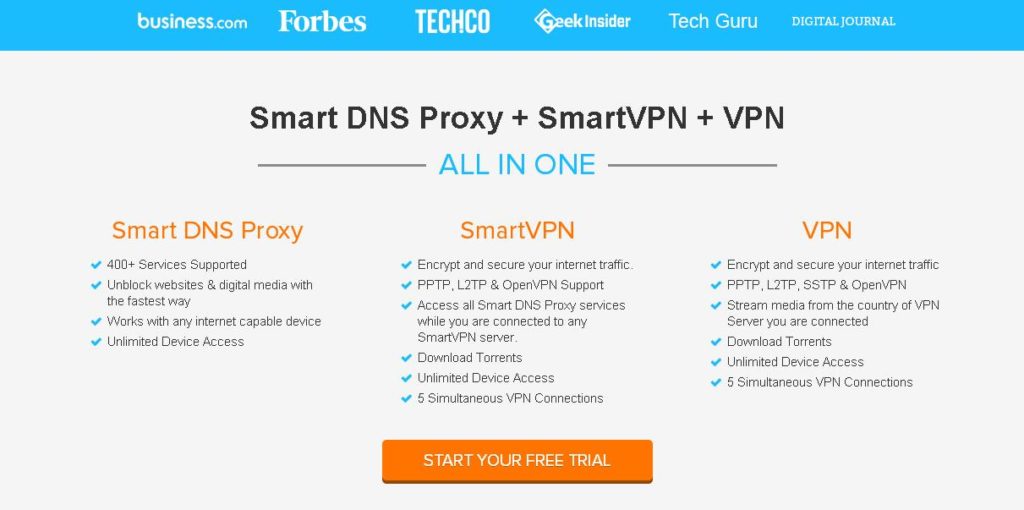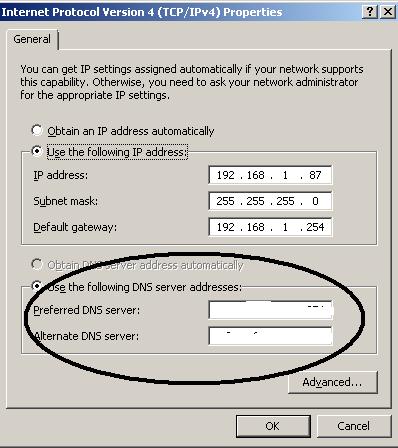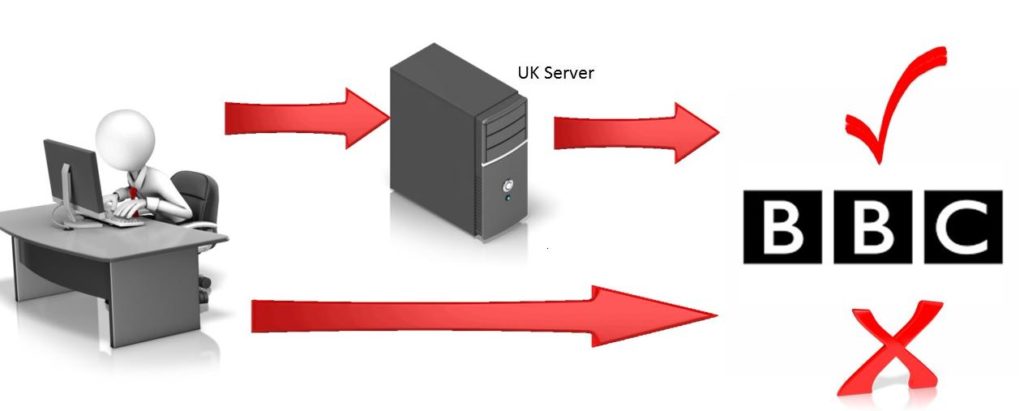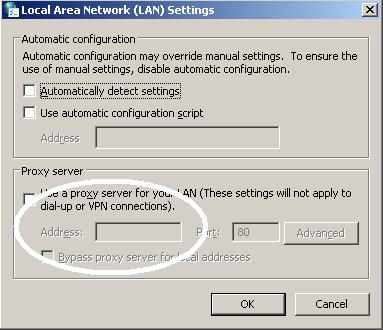Using Smart DNS for BBC iPlayer Access
So, throughout this site you’ll find numerous methods on how to access BBC iPlayer when you’re outside the United Kingdom. Many people will be well aware of what happens but to briefly summarise, the moment you step outside the UK for whatever reason, you’ll lose access to the BBC iPlayer and the ability to watch live BBC TV. Actually, you won’t be able to use a host of other sites too, such as ITVX, Channel 4, Sky, and hundreds of others. However, for me personally (and I suspect most others) the BBC media iPlayer is the one we really miss. So, dashing to place a bet on Betfair (and finding this is blocked too) is slightly irritating but trying to survive without the BBC is much more difficult! This post will help to explain the issue and demonstrate the easiest and cheapest workaround – the BBC iPlayer DNS trick which you can see in action by scrolling towards the end.
If you don’t want to read and just want to try – then you can grab this completely free Smart DNS Free Trial. It’s only free for 14 days unfortunately, but it’s perfect for a short break or to test it out. There’s no catch or card required if you don’t want to subscribe.
BBC DNS Alternative to VPNs
The method employed by these sites, and indeed thousands across the world, is to simply check your location based on your IP address. You connect to the site, your IP address is logged and then looked up to find out where it’s from. From this point, what happens depends on your location – for the BBC you must have a UK address otherwise you’ll be redirected to the international site and blocked from all TV and radio broadcasts from the site. For some of us, that’s a huge tragedy – I rarely watch anything else!
Of course there are methods to bypass these blocks, most of them involve hiding your location and pretending you’re in the UK.
Alternative Solutions – the BBC iPlayer DNS Trick
The traditional methods of accessing the BBC from abroad involve using either a VPN or a BBC iPlayer proxy to hide where you’re connecting from. The idea is fairly simple, instead of accessing the BBC site directly you bounce your connection through an intermediate service.
It’s not that difficult, it’s simply using a UK based server to hide your real location and for many years it’s worked flawlessly. All you need to do is find an available server in the UK and route your connection through it. The BBC (and any other site) will see the IP address of the server not yours and so everything will work.
Here’s how you could add a proxy server for example, just go into the privacy settings of whichever browser you’re using and add the server’s IP address. Then all your web requests would be routed through that server, as long as it’s in the UK the BBC and all other UK TV channels would work irrespective of your location.
Unfortunately for the last few years, the proxy method has no longer worked mainly because of the efforts of the BBC and other media sites who have blocked them all. The proxies used to work great and what was better they were a way to watch BBC iPlayer abroad free of charge. There’s no point messing around with them now, all the large media companies block access from proxies automatically. The BBC was the last company of any size where proxies still worked but this all stopped in 2015. Any mention of proxies in circumventing these blocks you find online is pretty much out of date, they simply don’t work anymore.
The next most used option is something called a VPN (Virtual Private Network), which in some ways is very similar to a proxy. The connection though is encrypted and also much more difficult to detect, as all traffic is routed through the connection seamlessly. As long as the VPN server was based in the correct country then you could normally access whichever site you needed by using a VPN server. These were great as they were difficult to block and also were very useful in adding a layer of security to your connection essential for travellers.
The drawbacks were few, there could be an impact on speed depending on how fast the VPN server was. The other issue is that a VPN is slightly harder to set up – either requiring some client software or manually establishing the VPN connection before it was used. It’s not overly difficult though, although you’d normally need a PC, laptop or tablet to be able to use a VPN like this.
So, do VPNs Still Work for Accessing the BBC?
Yes, although not all. Although you can’t detect a VPN connection easily, it’s possible but very difficult. Even the Chinese haven’t figured out to completely block VPNs. Although if you do some research, you will find references to BBC iPlayer detecting VPN services. They cannot automatically block them, but they do however look at two things:
- Companies Advertising VPNs to access the BBC, ITV, Sky etc – it’s easy to identify these companies from their websites and promotional material. A few legal letters often close these companies down, and if they don’t all the BBC needs is an account and they can identify their servers.
- Concurrent connections – the BBC are able to identify which IP addresses are connecting to their site. If they see 700 people, all downloading and streaming to the same IP address at the same time then it’s likely the address is a VPN server. The BBC can identify these IP addresses and manually block their access. It’s time consuming and expensive but very effective and this method has resulted in the majority of VPN services being blocked.
So, if you’re going to use a VPN company, these are important aspects to consider. Firstly, pick one that makes no mention directly of watching these channels on its site. Any that do are at much higher risk of being blocked or blacklisted. The same goes for any company that uses things like Google Ads to promote BBC watching services, stay clear as they’re likely to disappear. The second is don’t go for the super, cheap overloaded options as they’ll have too many users on too few addresses.
How to Watch BBC iPlayer in USA or Anywhere Outside the UK
As a long-term VPN user, of Identity Cloaker, I never thought I’d use anything else to access the BBC when abroad. However Smart DNS has proved so simple and adaptable that it’s now probably my preferred option to the BBC iPlayer VPN. It’s one that might suit you too, although please remember that Smart DNS provides no security or protection online to your account.
So, what’s a Smart DNS Server and What Does it Do?
Well in many ways it works in a very similar way to a standard VPN or proxy server. However instead of operating as a simple ‘man in the middle’, the server is much more selective. First of all you need an account, and my preferred option after testing the few services available is from these guys – Smart DNS proxy. At first, I was a bit wary of them because of two reasons which normally indicate the service will be terrible –
- Free Trial Available – I don’t like these as I always suspect they’re open to abuse and you’ll have thousands of freeloaders slowing the system for paid subscribers, however this doesn’t happen. The reason is probably because there’s limited bandwidth needed and little system impact on the servers.
- They’re Cheap – now this shouldn’t be a bad sign, but it often is. Cheap normally means overloaded, slow servers and hopeless support however neither is true about this company.
So here’s the company again – click on the graphic below if you want to try out the free trial.

So after setting up your subscription, you’ll need to get the addresses of the Smart DNS servers that are nearest to you. So pick the nearest physical location and jot down the IP addresses or copy them. You’ll need to change your normal DNS servers which have been assigned by your ISP to these instead. You can do this on individually on each device you want to be able to bypass the BBC (or any) Geo blocks or you can change it on your router which will affect every single device on your network.
So for example here’s where you’d change your DNS servers on a computer –

This is under control panel/network connections/local area settings/TCP/IP v4 properties although this varies depends on which device you’re using. It’s pretty easy to find on most devices though there is a guide for most things in the members area if you look.
That’s it then all you need to do is register your IP address by clicking on ‘activate’ button in the configuration area.
That’s all you need to do, if you want to see a quick demonstration on how it’s configured and how it works in action then just watch this brief video – How to Watch British TV Abroad.
The reason why it’s so quick and that there is virtually no impact on your internet connection speed is because unlike a VPN or proxy it doesn’t route everything through the servers. In fact Smart DNS is only enabled when you visit a geo-locked site like the BBC and then it only routes a small part of the connection through a UK server. Indeed it does just enough to hide your location and no more.
These are the main advantages of using Smart DNS first it’s faster because most of your connection is still direct with the website. This also means it’s cheaper as the bandwidth requirements are much smaller – almost all the VPNs are much more expensive. The final one is that it’s much more adaptable than a VPN because it’s easier to set up. Nowadays we’re all using things like media streamers, smart TVs, phones, games consoles and tablets to watch TV online -it’s almost impossible to set up a VPN on some of these. Using the BBC iPlayer DNS method is simple though, most devices have a ‘network configuration’ section and it’s a simple task to change these to Smart DNS ones.
So as long as you remember that it provides no additional security at all, Smart DNS is a cheap and simple way to unblock the BBC iPlayer app and loads of other websites without slowing down your connection. Actually our recommendation has both included, and it even supports Netflix abroad but I found the VPN client a little slow. However, the Smart DNS configuration is super-fast and reliable and extremely reasonably priced.
You can try out BBC iPlayer DNS for 14 days entirely free of charge here –
Free Trial of Smart DNS
.


Hi,
Fair question. Basically because alongside basic DNS functions, the Smart DNS server looks out for any request to a geo-restricted website – e.g the BBC. When it detects a request it reroutes the initial part of the connection through a proxy based in that country. The Smart DNS server is just there so that everything doesn’t get routed and only enough to hide your location.
That make sense?
I don’t understand how can a DNS server help hide your location? All it does is resolve IP addresses/Names????